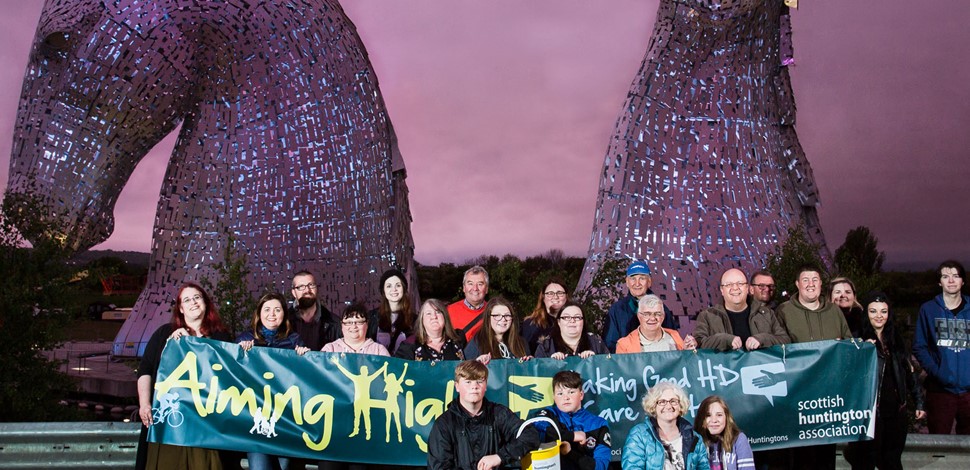Falkirk's iconic Kelpies lit up to highlight the fight to find a cure for the degenerative brain condition Huntington's Disease (HD) recently and a Forth Valley College student was there to capture the scene.
Part of HD Awareness Week the Kelpies joined a host of prominent buildings around the world, including First Direct Area in Leeds and the BC Place stadium in Vancouver Canada as well as the Titan Crane in Clydebank in the international HD colours of purple and blue to show support for families affected by the condition.
Fiona Read (32) from Sauchie – an HND Photography student based at Forth Valley College’s Stirling Campus – was asked by the Scottish Huntington's Association (SHA), the only charity in the country supporting families affected by HD, to take the photograph on Monday 15 May.
The SHA supports families living with HD through a team of specialist nurses, the world's only HD youth support and a financial wellbeing helpdesk.
SHA chief executive, John Eden said:
“Thanks go once again to Fiona for taking another great photograph to highlight ‘Light Up 4 HD’. The Kelpies and the Titan crane are both instantly recognised landmarks so we were delighted when they both agreed to take part in ‘Light Up 4 HD’. It is still a condition that is still widely misunderstood so it’s hugely significant for us to secure such great support in spreading the word about the impact it can have on people’s lives.
“This was a global initiative with countries in North America and all over Europe taking part, so it’s brilliant the Kelpies could add Scotland’s voice to raising awareness of this devastating condition.”
HD is estimated to affect around 1100 people in Scotland without about another 5000 at risk of potentially developing the disease.
HD is estimated to affect around 1100 people in Scotland without about another 5000 at risk of potentially developing the disease. HD is incurable genetic brain disorder that usually starts between the ages of 35 and 45 years. It begins with personality changes that can make those diagnosed aggressive, anxious and depressed. The disease progresses slowly, with changes to muscle control that slowly erodes mobility and the ability to talk. As it progress those affected will need 24 care. It is also hereditary with each child of those diagnosed at 50% rick developing the disease.


